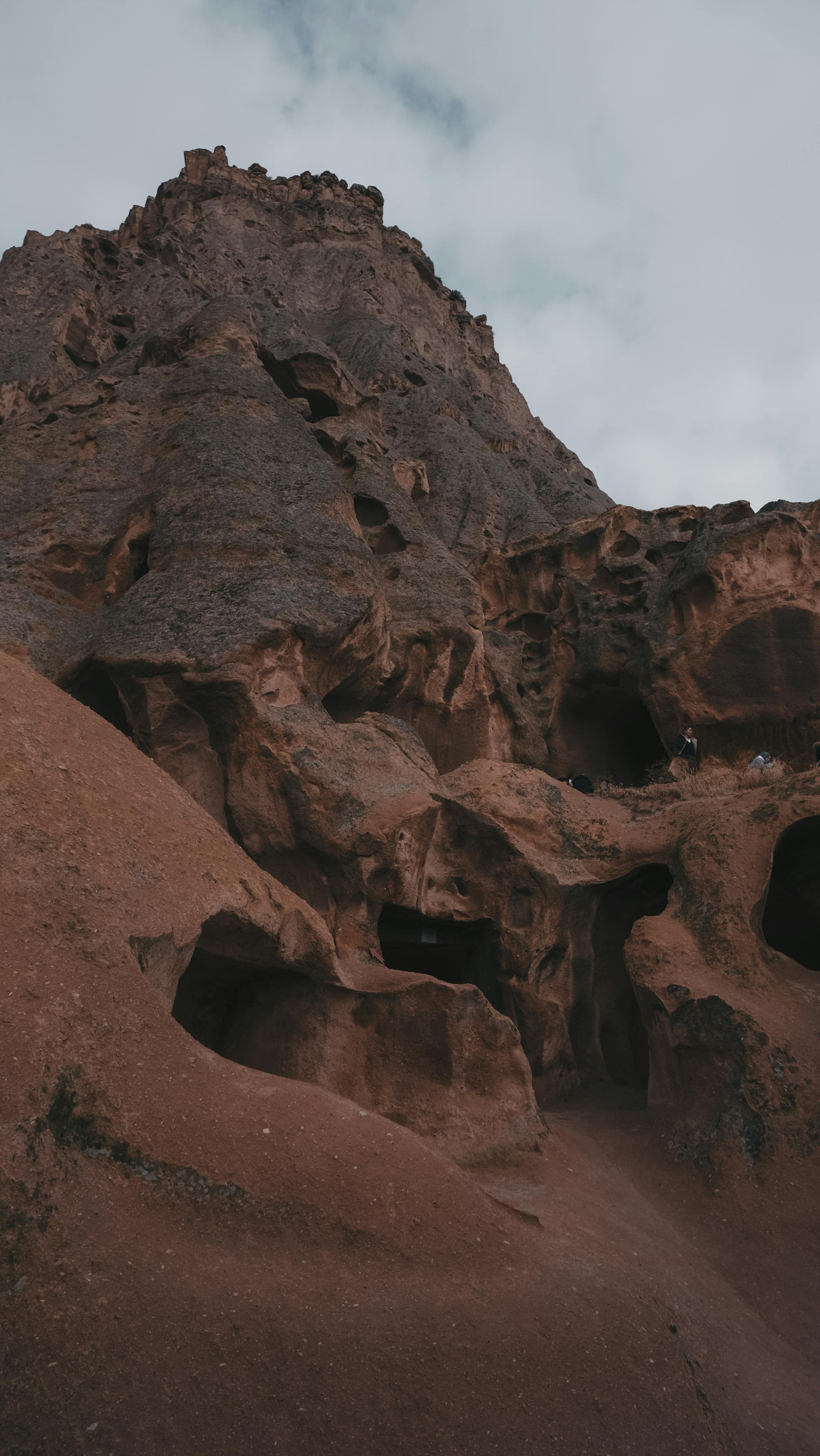If you’re a well owner in arid or desert climates, you might have wondered how to access resources specifically tailored to your needs. With the unique challenges faced by well owners in these regions, such as water scarcity and high temperatures, it’s essential to have the right information and support. Fortunately, there are various resources available that can provide guidance and assistance to ensure your well functions efficiently and your water needs are met. In this article, we will explore some ways to access these valuable resources and empower you with the knowledge to maintain and optimize your well in arid or desert climates.

Water Conservation and Management
Understanding Water Scarcity
Water scarcity is a pressing issue in arid or desert climates, where rainfall is limited and the demand for water is high. It is important to understand the challenges associated with water scarcity in order to effectively conserve and manage water resources. By recognizing the factors contributing to water scarcity, such as population growth, climate change, and unsustainable water use, you can begin to develop strategies to address the problem.
Implementing Water Conservation Techniques
Implementing water conservation techniques is crucial in arid or desert climates to ensure sustainable water usage. There are various techniques that you can adopt to conserve water, such as installing low-flow fixtures and appliances, repairing leaks promptly, and practicing water-efficient landscaping. Additionally, collecting and reusing rainwater through rainwater harvesting systems can significantly reduce the demand on groundwater sources.
Managing Water Usage
Managing water usage entails monitoring and controlling the amount of water consumed. This can be achieved by adopting water-saving habits, educating yourself and your community on responsible water use, and implementing innovative technologies that promote efficient water management. By using smart irrigation systems, for example, you can tailor watering schedules to the specific needs of plants, thereby minimizing water waste.
Well Maintenance and Care
Understanding Well Maintenance
Maintaining your well is essential for safe and reliable water supply. Regular maintenance helps prevent breakdowns, extends the lifespan of your well, and ensures good water quality. Understanding the basics of well maintenance is crucial, including the various components of a well system, such as the pump, pressure tank, and filtration system. By familiarizing yourself with these components, you can better identify any potential issues and address them promptly.
Performing Regular Inspections
Regular inspections are vital to identify any problems or potential risks associated with your well system. Inspecting the well casing, pump, electrical connections, and water quality can help you identify leaks, corrosion, or contamination. Hiring a licensed well inspector to conduct detailed inspections at least once a year is recommended. These inspections will provide you with valuable information about the condition of your well and help you take necessary steps to maintain its efficiency.
Ensuring Safe Water Supply
Ensuring a safe water supply involves regular testing for water quality. It is crucial to test for common contaminants, such as bacteria, nitrates, or heavy metals, which can pose health risks if present. Test your water regularly or after any significant changes, such as flooding or drought conditions. Stay informed about the potential risks and take appropriate measures to address any issues. Installing proper water treatment systems, such as filtration or disinfection systems, can help maintain the quality of your well water.
Finding Well Experts and Professionals
Importance of Well Experts
Well experts and professionals play a crucial role in providing specialized knowledge and assistance related to well ownership and maintenance. They have the expertise to handle well drilling, repairs, and maintenance tasks effectively. Seeking their guidance can help you navigate through the complexities of well ownership and ensure the longevity and reliability of your well system.
Researching and Contacting Local Experts
To find well experts and professionals in your area, start by conducting thorough research. Local directories, online resources, and community forums can provide you with a list of reliable and experienced professionals. Contacting them directly allows you to discuss your specific needs and concerns, as well as gather information about their services, qualifications, and pricing. Narrow down your options and choose a well expert who aligns with your requirements and preferences.
Seeking Recommendations from Other Well Owners
Another valuable way to find reputable well experts is to seek recommendations from other well owners in your community. Their firsthand experiences and insights can provide valuable guidance in selecting the right professional for your well needs. Consult with neighbors, friends, or local well owners associations to gather recommendations and gather insights on the quality of services provided by different experts.
Government Programs and Assistance
Exploring Government Programs
Government programs are often available to assist well owners in arid or desert climates. These programs aim to provide financial support, education, and resources to help well owners maintain their wells and ensure a safe water supply. Explore the resources provided by federal, state, and local governments to identify programs that address well maintenance, water conservation, and water quality testing.
Applying for Grants and Subsidies
Many government programs offer grants and subsidies to support well owners in making necessary upgrades or repairs to their well systems. These financial incentives can help offset the costs associated with well maintenance or the installation of water-saving technologies. By applying for grants and subsidies, you can access the financial assistance needed to implement sustainable practices and ensure the longevity and safety of your well.
Accessing Educational Resources
Government agencies often provide educational resources and materials to help well owners better understand well maintenance, water conservation, and water treatment. These resources can include brochures, guides, and online tools that offer valuable information on topics such as well construction, water quality testing, and conservation practices. By accessing these resources, you can enhance your knowledge and make informed decisions regarding your well.

Well Maintenance Equipment and Tools
Essential Tools for Well Owners
As a well owner, having the necessary equipment and tools is crucial for routine maintenance and troubleshooting. Some essential tools include a well pump pressure gauge, pliers, pipe wrenches, and a water testing kit. These tools allow you to perform basic inspections, handle minor repairs, and test the quality of your well water. Investing in these tools will enable you to take proactive measures and avoid unnecessary expenses in the long run.
Selecting Durable and Reliable Equipment
When choosing equipment and tools for well maintenance, prioritize durability and reliability. Opt for high-quality products that can withstand the harsh conditions of arid or desert climates. For example, select corrosion-resistant materials for pipes and fittings to ensure their longevity. This will minimize the need for frequent replacements and reduce the risk of system failures.
Proper Storage and Maintenance
To prolong the lifespan of your well maintenance equipment and tools, proper storage and maintenance are essential. Store tools in a dry and secure location to prevent rust or damage. Clean and inspect them regularly, removing any debris or buildup. Follow manufacturer guidelines for maintenance, such as lubricating moving parts or replacing worn-out components. By taking care of your equipment, you can rely on them whenever you need to perform maintenance tasks on your well.
Understanding State and Local Regulations
Researching State and Local Laws
State and local regulations regarding well ownership and maintenance can vary significantly. It is crucial to research and understand the specific laws and regulations applicable to your area. Familiarize yourself with requirements related to well construction, operation permits, water usage restrictions, and water quality testing. By complying with these regulations, you can ensure the legality and safety of your well system.
Obtaining Necessary Permits
Depending on your location, obtaining necessary permits may be a requirement before drilling a well or making significant modifications to an existing well. Contact your local government or relevant regulatory agencies to inquire about the specific permits you need to acquire. Make sure to adhere to the application processes and provide all the required documentation. Compliance with permitting regulations demonstrates your commitment to the responsible ownership and maintenance of your well.
Complying with Well Regulations
In addition to permits, it is important to comply with ongoing well regulations. These regulations may include regular well inspections, reporting of maintenance activities, adherence to water usage restrictions, and participation in water conservation programs. Staying updated on any changes or revisions to these regulations is crucial to ensure compliance and avoid penalties. By following the established guidelines, you contribute to the overall sustainable management of water resources in your area.

Water Quality Testing and Treatment
Importance of Water Quality Testing
Regular water quality testing is essential to ensure the safety and suitability of your well water for consumption. Water quality can be affected by a variety of factors, including natural contaminants, agricultural activities, and industrial pollution. By testing your water, you can identify any potential health risks and take necessary action to address them. Routine testing also provides valuable data that can help you make informed decisions regarding water treatment options.
Choosing Suitable Testing Methods
The choice of testing methods depends on the specific contaminants you want to assess. Basic water testing kits are available for homeowners to test for common contaminants such as bacteria, pH level, and nitrates. For more comprehensive testing, it is recommended to work with a certified laboratory that specializes in water analysis. They can provide accurate and detailed reports on a wide range of parameters, including heavy metals, volatile organic compounds, and pesticides.
Implementing Water Treatment Solutions
Water treatment solutions can help address any identified water quality issues to ensure a safe water supply. Depending on the contaminants present, different treatment options may be necessary. Common treatment methods include granular activated carbon filtration, reverse osmosis systems, ultraviolet disinfection, and ion exchange. Consult with water treatment professionals to determine the most effective solution for your specific needs and budget.
Monitoring Water Levels
Investing in Water Level Monitoring Systems
Monitoring water levels in your well is essential to prevent water shortages and manage water resources effectively. Investing in water level monitoring systems allows you to track the amount of water available in real-time. These systems utilize sensors that measure the water level and transmit data to a central control unit or your smartphone. By having access to accurate and up-to-date information, you can make informed decisions regarding water use and plan for possible water scarcity situations.
Using Remote Sensing Technologies
Remote sensing technologies, such as satellite imagery or aerial surveys, can provide valuable insights into water availability in arid or desert climates. These technologies enable experts to assess groundwater reserves, monitor changes in water levels, and identify potential risks, such as saline intrusion. By utilizing remote sensing technologies, you can gain a broader understanding of water resources in your region and contribute to more effective water management practices.
Analyzing and Interpreting Data
Collecting and analyzing data from water level monitoring systems or remote sensing technologies is key to making informed decisions. Regularly review the data to track any changes in water levels and identify trends or patterns. This information will help you adjust your water usage practices accordingly and plan for future water needs. Consulting with water experts or hydrologists can provide additional insights into interpreting the data and developing sustainable water management strategies.
Community Support and Networks
Joining Well Owners Associations
Joining well owners associations can provide you with a valuable support network of individuals who share similar experiences and challenges. Well owners associations often organize educational workshops, training sessions, and networking events. These opportunities allow you to expand your knowledge, learn from experts, and exchange ideas with other well owners. By being part of a community, you can gain access to resources and support that can enhance your well ownership experience.
Attending Workshops and Conferences
Attending workshops and conferences related to well ownership and water management is an excellent way to stay up-to-date with the latest advancements, regulations, and best practices. These events often feature presentations by industry experts, interactive sessions, and networking opportunities. Participating in these events gives you the chance to broaden your knowledge, interact with professionals, and gain valuable insights that can help you optimize your well maintenance and conservation efforts.
Participating in Online Forums and Groups
Online forums and groups dedicated to well ownership provide a platform for well owners to connect, share experiences, and seek advice. These virtual communities allow you to engage in discussions, ask questions, and access a wealth of knowledge from fellow well owners around the world. By actively participating in these online communities, you can foster meaningful connections, gain practical tips, and feel supported on your well ownership journey.
Alternative Water Sources for Arid Climates
Exploring Rainwater Harvesting
Rainwater harvesting is a sustainable practice that can provide an alternative water source in arid climates. By collecting and storing rainwater from rooftops or other surfaces, you can supplement your well water supply during periods of low rainfall. Rainwater can be used for various non-potable purposes, such as irrigation, cleaning, or flushing toilets. Implementing a rainwater harvesting system requires proper design and maintenance to ensure optimal results.
Considering Desalination Methods
Desalination is a process that converts saltwater into freshwater, offering a potential solution for arid regions located near the coastline. Desalination plants remove the salts and minerals from seawater, making it safe for human consumption and other uses. While desalination can be an expensive and energy-intensive process, advancements in technology have made it more feasible in recent years. Exploring desalination methods can provide an additional source of freshwater in areas where traditional water sources are limited.
Utilizing Greywater Systems
Greywater refers to relatively clean wastewater generated from activities such as bathing, laundry, or dishwashing. Reusing greywater through specialized systems allows you to reduce water consumption and minimize the strain on your well system. Greywater can be treated and used for landscape irrigation or toilet flushing. Implementing greywater systems requires proper filtration and treatment to ensure the water is safe for its intended use.
In conclusion, being a well owner in arid or desert climates requires understanding and implementing various strategies to ensure sustainable water usage and well maintenance. By focusing on water conservation, well care, accessing expert guidance, adhering to regulations, and exploring alternative water sources, you can effectively manage your well system and contribute to the preservation of water resources in these challenging environments. With the right knowledge, tools, and community support, you can navigate the unique challenges of well ownership in arid climates and ensure a safe and reliable water supply for yourself and future generations.

